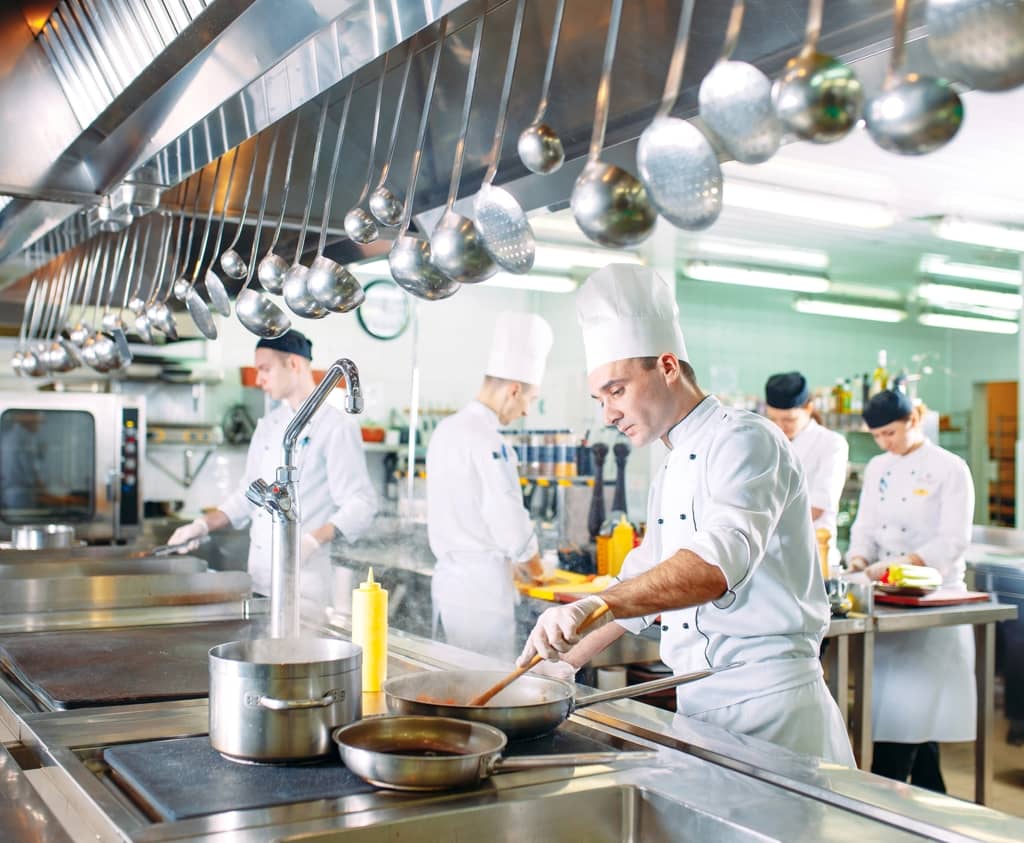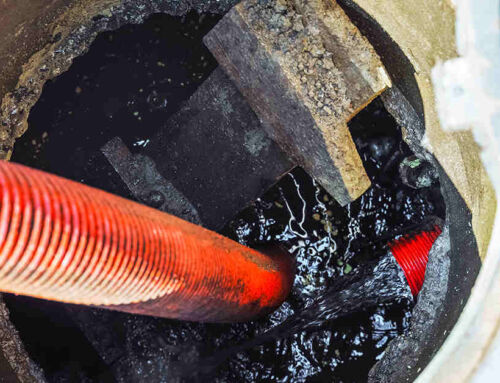Jump to…
Experience the Unblockers Difference
No call-out charges
Emergency response call-outs available
Available anytime 24/7
Expert, local engineers
Fixed price, no hidden charges

Key Points
The Importance of Effective Grease Management
Proper grease management is crucial in any commercial kitchen to prevent plumbing emergencies and ensure a sanitary working environment. Effective strategies extend beyond simple fixes to embrace comprehensive practices that safeguard kitchen operations.
The Dynamics of Grease in Commercial Kitchens
Grease, consisting of fats, oils, and greases (FOGs), accumulates from everyday cooking and dishwashing, posing significant challenges if not properly managed. These substances solidify in cooler temperatures within plumbing systems, leading to blockages and backups.
Detailed Tips to Prevent Grease Buildup
Selecting and Installing the Right Grease Traps
Choosing the appropriate grease trap is vital and should be based on kitchen size, average meal output, and local regulations. Opt for devices that offer ease of maintenance and effective grease retention. Regularly assess your setup’s adequacy as your business evolves.
Structuring Preventative Maintenance
Develop a preventative maintenance schedule that includes frequent inspections and cleanings of grease traps and drains. Employ logging practices to monitor grease levels and schedule cleanings before reaching critical levels, thus avoiding emergencies.
Optimising Kitchen Practices for Grease Reduction
Modify kitchen practices to minimise grease waste. Implement techniques such as dry wiping pots and pans before washing and managing the types of foods processed through garbage disposals. Educate staff on how different practices affect grease management.
Implementing Comprehensive Waste Disposal Techniques
Advance beyond basic disposal methods by implementing comprehensive waste management systems. Utilise grease collection services and explore innovative recycling options to handle used oils and grease, turning waste into resources.
Training Staff for Best Practices in Grease Management
Continuous education and training programs for staff are essential. Regular workshops and updated training materials will keep all team members informed about best practices and new technologies or regulations in grease management.
Leveraging Professional Grease Management Services
For complex systems or frequent issues, consider contracting professional grease management services. These services use advanced methods, such as hydro-jetting and enzymatic treatments, and offer professional assessments to optimise your grease management strategies.
A Strategic Approach to Grease Management
A strategic approach to grease management involves comprehensive planning, regular maintenance, and a proactive stance on kitchen practices. By adopting these detailed strategies, restaurant owners can ensure smoother operations, avoid costly repairs, and maintain compliance with health and safety standards. This proactive approach not only enhances the efficiency of kitchen operations but also contributes to environmental sustainability.

Related Articles
READY TO MAKE YOUR ENQUIRY?
Get a quote for a drainage callout
Get a quote for a drainage callout
We have drainage engineers in your area now offering availability today.
Just leave a few details and our friendly drainage service team will call you right back.
We have drainage engineers in your area now offering availability today.
Just leave a few details and our friendly drainage service team will call you right back.
"*" indicates required fields

Need to speak to us right away? We have local engineers available now. Call 0808 303 0050
“Outstanding Service & Fast Repair”





